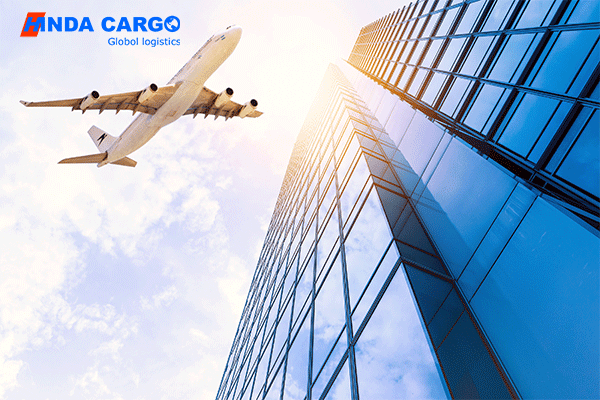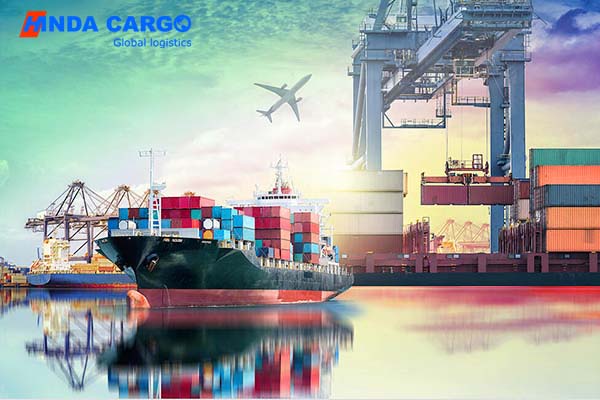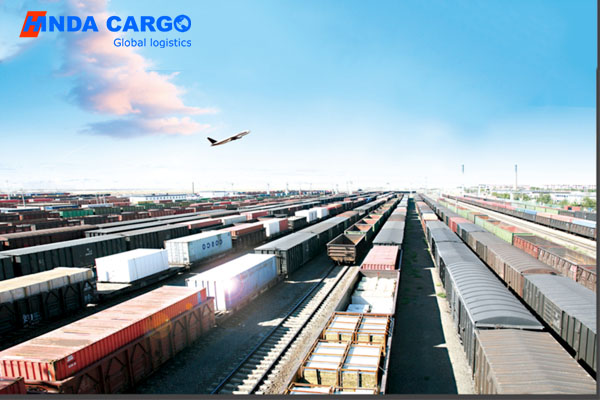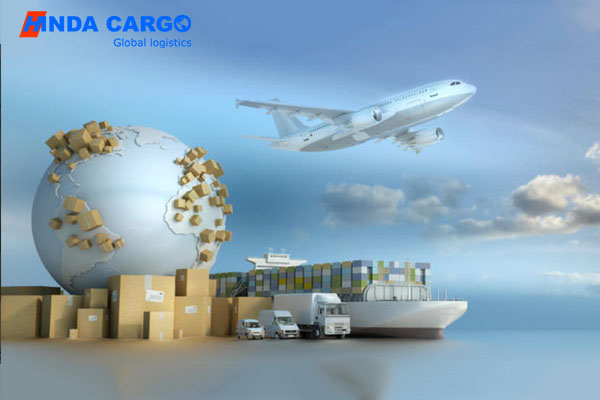What is the difference between air cargo and freight?
It is crucial for businesses and consumers alike to understand the different shipping methods and their characteristics. In the logistics industry, air cargo and freight are often mentioned, but there are significant differences between them.
This article will discuss in detail the definition, characteristics, advantages and disadvantages, and applicable scenarios of air cargo and freight to help readers better understand these two modes of transportation.

What is the definition of air cargo?
Air Freight refers to the process of transporting goods from one location to another via airplane. Air freight is a fast and efficient method of transport for high-value, urgent or time-sensitive shipments.
What are the main characteristics of air cargo?
1. Fast: Air freight is the fastest of all modes of transportation, capable of delivering goods to their destination within hours or days. Therefore, air freight is suitable for urgent shipments that require fast delivery.
2. High safety: Air transportation is safer. The goods are subject to strict security inspection and supervision during transportation, and the risk of damage or loss is small.
3. Suitable for high-value and urgent cargo: Due to its fast speed and high safety, air freight is often used for high-value or time-sensitive cargo, such as electronic products, pharmaceuticals, and perishable food.
4. High freight: The transportation cost of air freight is relatively high and is not suitable for transporting large quantities of low-value goods.
5. Many restrictions: Air freight has strict restrictions on the weight, volume and type of goods. Some dangerous goods or oversized goods may not be transported by air.

What are the advantages and disadvantages of air freight?
Advantages of air cargo:
1. Fast: Air freight can deliver goods to the destination in the shortest time and is suitable for urgent goods.
2. Safety: The security inspection measures for air transportation are strict, and the safety of goods during transportation is high.
3. Reliable: Flight schedules are generally accurate and provide reliable delivery times.
Disadvantages of air cargo:
1. High cost: Air freight has high freight and is not suitable for transporting large quantities of goods.
2. Many restrictions: Air freight has strict restrictions on the type, weight and volume of goods.
3. Affected by weather: Air freight is easily affected by weather conditions, which may cause flight delays.
What is the definition of freight?
Freight refers to the transportation process of goods, including sea transportation, land transportation, air transportation and railway transportation. Freight in a broad sense covers all types of cargo transportation, while freight in a narrow sense usually refers to other modes of transportation besides air transportation, such as sea transportation and land transportation.
What are the main features of freight?
1. Diverse modes of transportation: Freight includes sea transportation, land transportation, air transportation and railway transportation. The most suitable method can be selected according to the characteristics of the goods and transportation needs.
2. Suitable for large-volume transportation: Freight is particularly suitable for long-distance transportation of large quantities of goods. For example, sea transportation can transport a large amount of goods at one time, and the transportation cost is low.
3. Lower costs: Compared with air freight, the transportation costs of other freight modes are relatively low, and they are suitable for the transportation of bulk goods and low-value goods.
4. Longer time: Except for air freight, other freight modes have longer transportation times and are suitable for goods that do not have high time requirements.
5. Strong flexibility: There are various freight modes and can flexibly respond to various transportation needs. For example, land transportation can provide door-to-door services, and railway transportation is suitable for long-distance inland transportation.

What are the pros and cons of freight shipping?
Advantages of freight shipping:
1. Low cost: The transportation costs of sea transportation and land transportation are low, and they are suitable for transporting large quantities of goods.
2. Large transportation volume: Especially sea transportation can transport a large amount of goods at one time.
3. Diverse modes: There are various modes of freight transportation, and the most suitable mode of transportation can be selected according to different needs.
Disadvantages of freight shipping:
1. Long time: Except for air freight, other freight methods have a long transportation time and are not suitable for urgent goods.
2. Low security: The security of sea transportation and land transportation is relatively low, and goods may face the risk of being lost or damaged during transportation.
3. Affected by natural conditions: Ocean shipping is easily affected by weather and sea conditions, which may cause transportation delays.
What is the difference between air cargo and freight?
Conceptual differences
Air cargo specifically refers to the transportation of goods by aircraft, while freight is a broad concept, including sea transportation, land transportation, air transportation and rail transportation.
Differences in transportation methods
Air cargo is transported only by airplane, while freight includes sea transportation, land transportation and railway transportation. The most suitable transportation method can be selected according to the characteristics of the cargo.
The difference in transportation speed
Air cargo has the fastest transportation speed and is suitable for urgent cargo transportation. Other modes of freight transportation, such as sea transportation and land transportation, have slower transportation speeds and are suitable for goods that do not have high time requirements.
Differences in transportation costs
The transportation cost of air cargo is relatively high and is not suitable for the transportation of large quantities of goods. The transportation costs of other freight modes are relatively low and are suitable for the transportation of bulk goods and low-value goods.
The difference between security and restrictions
Air cargo is safer, but there are strict restrictions on the weight, volume and type of cargo. Other freight modes are less secure but less restrictive and capable of transporting large quantities and multiple types of goods.
Differences in applicable scenarios
Air cargo is suitable for high-value, urgent or time-sensitive cargo such as electronics, pharmaceuticals and perishable food. Other freight methods are suitable for high-volume, low-value or time-sensitive goods such as bulk commodities, raw materials and industrial equipment.

Actual case analysis
In order to better understand the difference between air cargo and freight, we can analyze it through actual cases.
Case 1: Emergency pharmaceutical transportation
A pharmaceutical company needs to transport a batch of newly developed vaccines from Europe to Africa. The vaccines have strict requirements on transportation time and temperature. Due to time constraints, the company chose air transportation. The freight forwarding company arranged special cold chain transportation to ensure the temperature control of the vaccine during transportation and quickly completed customs clearance procedures. In the end, the vaccine was successfully delivered to its destination within a few days, meeting the urgent local needs.
Case 2: Bulk commodity shipping
A mining company needs to transport a shipment of iron ore from South America to Asia. Due to the large size and heavy weight of iron ore, the company chose sea transportation. The freight forwarding company chartered a bulk carrier and arranged loading and ocean transportation. Although the transportation time is longer, the shipping cost is lower, which can effectively reduce the company's logistics costs. Finally, this batch of iron ore arrived safely at the Asian port, meeting the production needs of local steel plants.
In conclusion
Air cargo is suitable for the transportation of high-value and urgent cargo due to its fast, safe and efficient characteristics. Freight, as a broad transportation concept, includes a variety of transportation methods and is suitable for the transportation of large quantities, low value and low time requirements.




